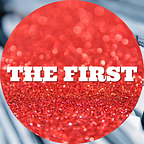Should the news media refuse to cover a political candidate who repeatedly lied? (And no, it’s not Trump)
A man stands on a box in the park. He shouts out nonsensical statements at passersby. Few listen. Most dismiss him as a crank.
He’s exercising his freedom of speech, but do we have to listen?
For a newspaper: do we have to report it?
Former Ohio Treasurer Josh Mandel has run and is running again for the U.S. Senate. However, as Quinn explains, “He’s proven himself to be a candidate who will say just about anything if it means getting his name in the news.”
So separate from the specifics of Mandel’s candidacy: does the press have a responsibility to cover the statements of a candidate no matter how laden with lies they may be?
Let’s look at the arguments for and against. For this, I’m acting as the editor for an imaginary publication and writing both to the staff and the readers of the publication.
Option 1: Cover it all with context
Let’s run through the scenario that “we cover it all.” By this I mean, we print what the candidate says, fact check it, analyze it, talk to experts and put all of that before our readers.
A candidate that gets caught out by fact checking, like Mandel or former President Trump, should be called out as a liar.
The New York Times public editor Liz Spayd, for example, tried to explain just prior to the election in 2016 when and why the Times would or wouldn’t use “lie” when covering Trump’s provable untruths.
“Its power in political warfare has so freighted the word [lie] that its mere appearance on news pages, however factually accurate, feels partisan.” However, in the same piece she writes, “That said, I think The Times should use this term rarely. […] It feels, as [NY Times political editor Carolyn] Ryan said, as if you’re playing the referee in frivolous political disputes.” Which does undercut the argument a bit.
But this is not 2016. We’ll print what candidates and political operatives say couched in what retired University of California professor George Lakoff calls the “truth sandwich.”
- Start with the truth. The first frame gets the advantage.
- Indicate the lie. Avoid amplifying the specific language if possible.
- Return to the truth. Always repeat truths more than lies.
Our readers are smart enough to see a liar for a liar and not buy into frivolous grandstanding. To not publish, to not tell the truth of the events, to not show the readers this individual with all his or her faults would be to insult our audience.
In 1974 when “the father of modern journalism” and founding editor of New Republic Walter Lippmann passed away, Anthony Lewis for The New York Times wrote:
“There can be no higher law In journalism than to tell the truth and shame the devil.” Walter Lippmann said that fifty years ago. There are occasions when publication is unwise; editors are not insensitive to those realities. But recent events make it plain that, in our system, the presumption must be overwhelmingly in favor of publishing.
Nearly a half century has passed, but the goal is the same, “tell the truth and shame the devil.”
Option 2: Ignore the fool
A different approach is to simply ignore Mandel’s reckless call to drop the current mask mandate in Ohio which is not grounded in advice from medical experts.
Chris Quinn, The Plain Dealer and Cleveland.com editor, has opened a window into his publication’s decision-making on the coverage of Mandel.
It’s simple. Mandel wants attention. A candidate’s viability rests on name recognition, getting their message out, and “earned media.” Mandel is leaning heavily on the latter point.
Mandel is pretty much a nobody right now, a nobody begging for people to notice his Tweets a year ahead of the Senate primary. Just because he makes outrageous, dangerous statements doesn’t mean it is news.
Earned media is essentially a way to quantify the value of getting a candidate’s or politician’s mentioned in a news piece. How many folks see what the candidate is saying.
It’s 2021 and candidates and political operatives are still slinging spin, half-truths, and outright lies at any reporter with the aim of getting “earned media.” Former President Trump did just this in 2016, garnering nearly $5 billion in essentially free campaign advertising.
So the Plain Dealer is going to ignore Mandel’s foolish and dangerous statements. But when will they cover him?
As we get closer to election time, what Mandel says might be news, and I don’t believe the right approach to covering dangerous statements by candidates is the traditional “he said-she said.” If a candidate makes statements that endanger the lives of Ohioans, as Mandel did here, that’s the story. That’s the news.
I believe we will be writing a lot of analysis pieces if Mandel becomes a viable candidate.
The Gatekeeper
No one can be an expert in everything. And we’re drowning in more information than ever. So news organizations lean on the many years of experience of their reporters and editors to deliver “news you can use” to save readers time and effort.
The Plain Dealer is returning to the role of gatekeeper that most news outlets held prior to the fracturing of the media and the rise of the internet. Newspapers and TV news programs filtered all the noise to deliver what the reporters and editors believed we, the audience, needed to know. We trust them, and it is a tremendous trust, to deliver information of value and truth.
If they violate that trust, there are now more options than ever before for our attention.
However, perhaps gatekeeping need not be a dirty label any longer if they keep the liars and charlatans at bay.
